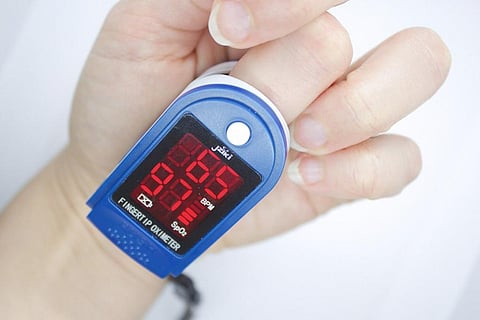Oximeter for COVID-19 : Sellers using loopholes in India's MRP regime to overcharge
The Union Ministry of Chemical and Fertilizers had directed National Pharmaceutical Price Authority (NPPA) in July 2020 to specifically control prices for oxygen concentrators and pulse oximeters. NPPA had issued it to manufacturers and had asked them to share details of the maximum retail price (MRP) set by them.
The MRP regime in India is non-transparent and is in dire need of reforms. It only has symbolic value as it does not reflect the actual market price. This has become more evident with the novel coronavirus disease (COVID-19) crisis where MRP is being used as a shield for profiteering from medical equipments like oximeter.
Oximeters were earlier available at Rs 900 before the second wave of the pandemic. The same models are now being sold at Rs 2,000-3,000. The catch here is that the MRP marked on the box is Rs 3,500-4,000.
There is no set method in India to arrive at the MRP. Ideally, it should be the cost of production plus profit but manufacturers are using MRP to escape the regulatory net of authorities like NPPA.
The over-reliance of our laws to regulate prices of packaged products and goods (non-scheduled) based on only MRP is a grave error. It makes the whole regulation process toothless and ineffective.
Last June, the NPPA issued a memorandum saying that the MRP cannot be increased by more than 10 per cent in a year. As oximeter comes under non-scheduled list, its MRP is not calculated by the method provided in Drugs Price Control Order, 2013 (DPCO) leaving the scope of MRP manipulation at the will of manufacturers.
As the whole regulation of non-scheduled list is based on MRP, it is shocking that there is no check on how this MRP is fixed by manufacturers. This means manufacturers can set MRP Rs 200-300 per cent high over and above the production cost, and can keep earning super profits while escaping the regulatory radar of NPPA.
I have come across many wholesellers who are selling oximeter in bulk at Rs 615-750 per piece, including 12 per cent goods and services tax. The delivery timeline ranges between 5-10 days. The product comes with 1 year manufacturer warranty.
Immediate action required
There is a need for bringing the oximeter under scheduled list of DPCO, read with Essential Commodities Act, to bring down the price and curb profiteering. The DPCO also provides for a method to determine ceiling price with a reasonable retail margin of 16 per cent.
It is an urgent call for the government to do the necessary and help people with whatever it can. NPPA should rise up to the task to give people a sigh of relief and ray of hope by doing what it is mandated to do.
The government must take speedy measures as it had taken for sanitisers and masks (N95 and surgical) during the onset of pandemic, which significantly brought down their MRP.
During the prolonged second wave, fresh demands will pour in for oximeter. In the current situation when hospitals are flooded with patients, early diagnosis of oxygen saturation drop can provide much-needed respite and save lives.
Views expressed are the author’s own and don’t necessarily reflect those of Down To Earth.


